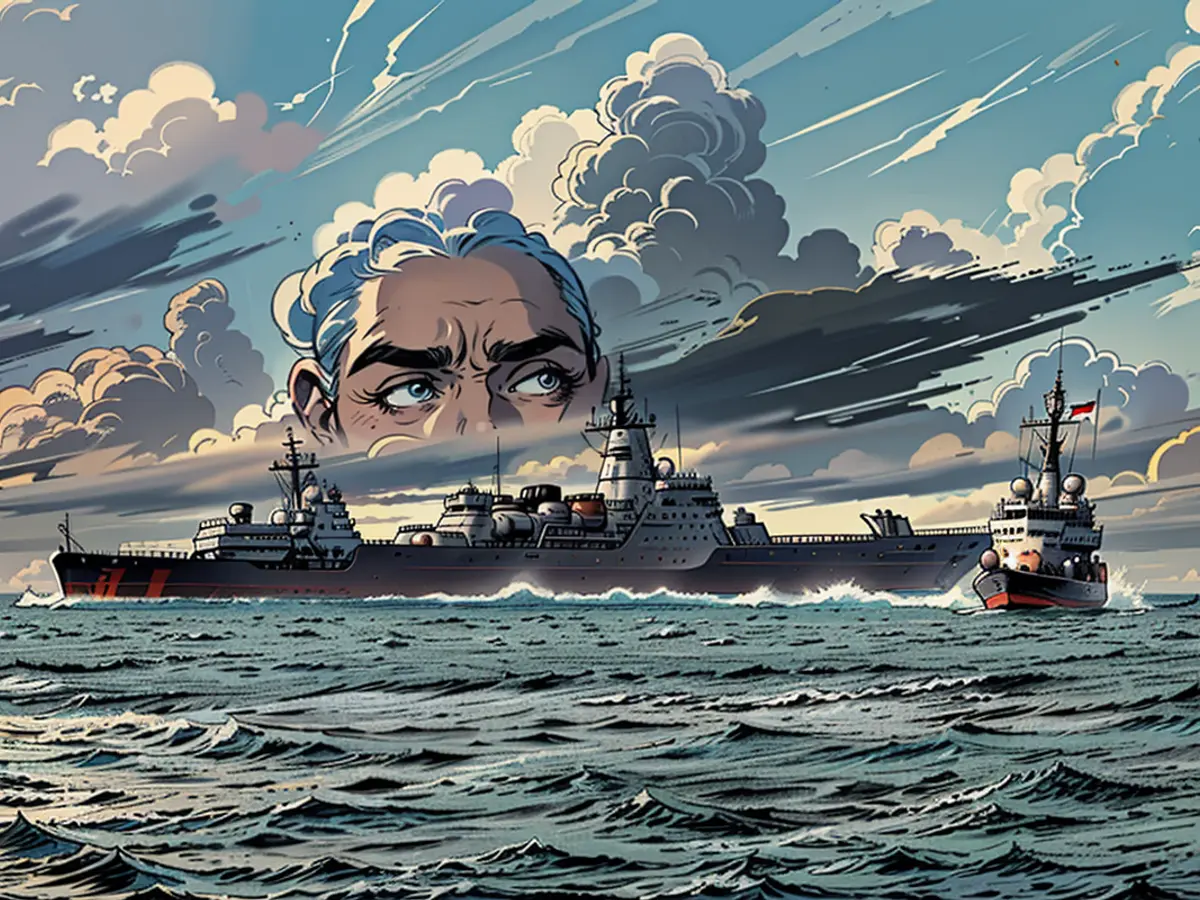U.S. and Chinese military leaders engage in unusual dialogue to minimize the potential for accidental escalation
Admiral Samuel Paparo from the US Indo-Pacific Command and General Wu Yanan, head of the People's Liberation Army's Southern Theater Command, had a video conference, as per reports from both sides.
This chat signifies progress in the slow renovation of high-level US-China military communications, which have been gradually improving as the two nations handle numerous regional issues, such as China's hostile actions in the South China Sea and its stance towards Taiwan.
China halted high-level military dialogue with the US in August 2022, after the visit of then-House Speaker Nancy Pelosi to Taiwan. This self-governing, democratic island is claimed by China's ruling Communist Party as their own territory.
During a visit to Beijing in late October, White House national security adviser Jake Sullivan and Chinese officials agreed to arrange a commander-level meeting in the near future.
According to a White House summary, Admiral Paparo emphasized during the call on Tuesday that maintaining open communication between senior military leaders can "clarify intent and reduce the risk of misunderstanding or miscalculation."
He also expressed concern over "several recent PLA unsafe interactions with US allies" and urged the PLA to adhere to international laws and regulations to ensure operational safety. Paparo further urged the PLA to reconsider its use of risky, aggressive, and potentially escalating tactics in the South China Sea and beyond.
The White House summary characterized the discussion as a "constructive and respectful exchange of perspectives." Chinese state media confirmed the meeting, but only mentioned that the two sides discussed topics of mutual concern.
The reintroduction of the commander-level talks takes place in the context of particularly heightened tensions in the South China Sea. Here, Chinese and Philippine naval vessels have engaged in a series of increasingly violent but non-lethal clashes in recent months.
China claims control over nearly the entire South China Sea, despite an international court ruling to the contrary. Recently, the US has reiterated its "unshakeable commitment" to defend its treaty ally, the Philippines.
Any miscalculation in the South China Sea could potentially escalate into a harmful regional conflict involving the world's two largest economies. The lack of communication could intensify these risks, analysts have warned.
The conversations also occur amid a host of issues between Washington and Beijing, such as China's alliance with Russia and the US' accusations of supporting Russia's defense industry. Additionally, there are concerns about the US strengthening ties with China's regional allies to contain its influence.
Tuesday's meeting represents a rare instance of interaction between top military officers leading American troops in the Indo-Pacific and Chinese strategy in the Southern and Eastern theaters.
This dialogue is part of a broader, gradual reinstatement of high-level military communication, following a meeting between US President Joe Biden and Chinese leader Xi Jinping in November.
Top US and Chinese generals held discussions in December after more than a year of silence, and US and Chinese defense heads had rare conversations on the sidelines of a defense meeting in Singapore in May.
However, the Biden administration had for months sought to expand direct discussions between the two world powers beyond government officials to uniformed officers taking decisions in the region.
CNN's Josh Campbell contributed to this report.
The reestablished commander-level talks between Admiral Paparo and General Wu Yanan are significant, as they occur in the context of escalating tensions in the South China Sea, a region where both the US and China have strong stakes. China's stance on the South China Sea, including its controversial actions and claims, has been a point of contention with numerous nations, including the US.
Despite the halt in high-level military dialogues in August 2022, following House Speaker Nancy Pelosi's visit to Taiwan, these conversations between top military leaders from the US Indo-Pacific Command and China's Southern Theater Command are essential to maintain open communication and clarify intentions, reducing the risk of misunderstandings or miscalculations in the world's highly interconnected economic landscape.







